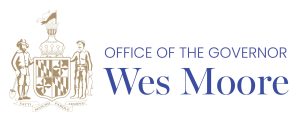
Annapolis, MD — Governor Wes Moore today announced that Maryland Department of Commerce finance and tax incentive programs helped create and retain 9,725 direct jobs in Maryland during FY 2023. More than 780 business recipients utilized the department’s programs over the year, investing nearly $166 million of private capital into projects across the state.
“One of our top priorities is making Maryland more competitive. Today, we celebrate a big step forward in our work to grow the economy in every corner of our state,” said Gov. Moore. “With help from Commerce’s finance and tax credit programs, we are adding new jobs, retaining existing jobs, and providing workforce training resources when needed. In partnership, we will continue our efforts to build new pathways to work, wages, and wealth for all.”
The figures come from the 2023 Consolidated Incentives Performance Report. Nine programs covered by the report capture data on jobs created or retained as a direct result of assistance received. Direct jobs for the others—as well as indirect and induced jobs for all programs in the report—are estimated. Altogether, 14,404 direct, indirect, and induced jobs are supported by the Maryland Department of Commerce’s programs.
The majority of new and retained jobs were supported by four programs – Job Creation Tax Credit, More Jobs for Marylanders, Partnership for Workforce Quality, and the Small, Minority and Women-Owned Business Account – Video Lottery Terminal Fund (VLT). The More Jobs for Marylanders program supported 2,779 jobs—the most of any program in the report. Together, the four programs supported 210 recipients that generated a combined total of 8,520 jobs.
Within Maryland’s key industry sectors, the manufacturing sector created and retained the most jobs in fiscal year 2023 with more than 6,700 jobs spurred by various programs. The total accounts for nearly 70% of all jobs reported to Commerce during the fiscal year. The professional, scientific, and technical services sector ranked second with 1,285 jobs and the accommodation and food services sector ranked third with 478 jobs.
“There is no one-size-fits-all solution to supporting our business community. That’s why Maryland Commerce’s finance and tax credit programs are targeted to assist a wide range of companies, from small businesses who need a helping hand to established companies who are making significant investments in new facilities and everything in between,” said Maryland Department of Commerce Secretary Kevin Anderson. “This allows us to tailor our support to the sectors where it will have the greatest impact, make adjustments when we need to, and deliver the best value to Maryland taxpayers.”
The industry with the most program recipients was the professional, scientific, and technical services sector, which included 252 awards. This includes many key sectors of Maryland’s economy, including biotechnology, cybersecurity, and research. Manufacturing recipients followed second, and health care and social assistance ranked third, respectively.
Impacts between programs are not directly comparable as each program is deliberately designed to achieve different particular outcomes at various timeframes. Some impacts may or may not be estimated based on a variety of factors as described in the report.
To learn more about financial incentives and business resources offered by the Maryland Department of Commerce, visit commerce.maryland.gov.




